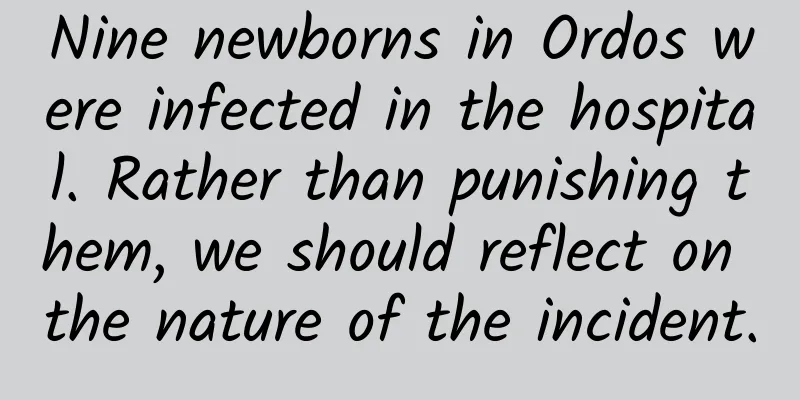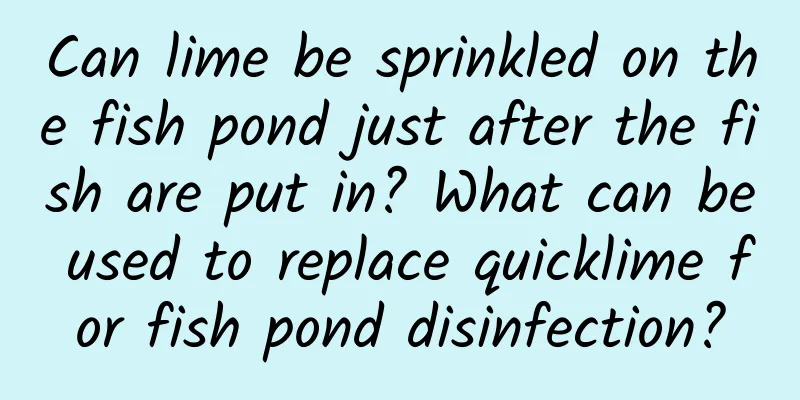Nine newborns in Ordos were infected in the hospital. Rather than punishing them, we should reflect on the nature of the incident.

|
An outbreak of nosocomial infection in newborns occurred in the Ordos Central Hospital in the Inner Mongolia Autonomous Region. Nine newborns were infected in the hospital, of which three died. With the intervention of the National Health Commission, the nosocomial infection incident was quickly concluded. The outbreak was caused by the horizontal transmission of Escherichia coli (EAEC) in the ICU ward of the neonatal department of the hospital. In other words, it was entirely a "man-made disaster." As expected, the relevant leaders were soon punished to varying degrees. However, rather than punishing them, we should reflect on the nature of the incident. Neonatal hospital infection incidents are emerging in an endless stream. Neonatal hospital infection has always been the hardest hit area for hospital infection. On the one hand, the neonatal immune system has not yet fully developed, and on the other hand, some neonates often require more invasive operations. Take the hospital infection incident at Ordos Central Hospital as an example. The official report showed that enteroadherent Escherichia coli (EAEC) was transmitted horizontally. Escherichia coli is a very common bacterium in the intestine. Most of them are non-pathogenic bacteria, and only a part of them are conditional pathogens. For example, they can cure diseases under certain specific conditions (decreased immunity). The occurrence of the Ordos neonatal hospital infection incident was that the neonate was infected with enteroadherent Escherichia coli in the ICU, and his own immunity was weak, which led to the disease. If we think about it carefully, it seems that there are neonatal hospital infection incidents every year, such as the neonatal infection in Southern Medical University Shunde Hospital two years ago, and the neonatal hospital infection incident in Xi'an Jiaotong University that caused a sensation that year. Every time a similar incident occurs, the relevant leaders are often punished and the matter is left unresolved. In fact, rather than punishing the relevant leaders, we should reflect on the nature of the incident. Rather than punishing the relevant leaders, we should reflect on the nature of the incident. Punishment of the relevant leaders can only show that the hospital infection was a "man-made disaster". Maybe it will get better in the short term, but it cannot solve the fundamental problem! If we cannot face and solve the problem from the essence, similar problems will continue to occur. Seriously insufficient staffing From the report on the Ordos neonatal hospital infection incident, it can be seen that the number of nursing staff is seriously insufficient and the bed-to-nurse ratio is not up to standard; during the Qingming Festival holiday, only one health worker was arranged to be responsible for the disinfection work of the ICU, and the staffing requirements for key positions were weakened. Only one hygienist was assigned to disinfect the ICU. To put it bluntly, the staffing was insufficient and the funding was tight. The bed-to-nurse ratio was not up to standard. The serious shortage of nursing staff was a problem faced by every tertiary hospital. Nursing work was busy and the pay was low. Many nursing workers who worked with me switched to other industries. Not only did they not flow in, but they kept losing. The shortage of nursing staff was becoming more and more serious. Even if some hospitals barely meet the standard for bed-to-nurse ratio, facing more and more patients, adding beds and hanging beds are common, and in the end, the bed-to-nurse ratio still does not meet the standard. Therefore, improving the treatment of nursing staff, increasing investment, and retaining excellent nursing talents are the top priorities. Concealing or underreporting problems I don't know when it started, but "covering up" has become a habit when encountering problems. The deaths of miners a few months ago were also concealed at the first time, missing the best time for rescue. In this hospital infection incident, from the first case of neonatal infection on April 5 to the ninth case of neonatal infection on the 11th, the hospital never reported to the local health administrative department in a timely manner, which had an adverse impact on subsequent medical treatment and disposal. If you encounter a problem, be sure to report it in a timely manner. Concealing or underreporting will only make the problem worse. Summary: Hospital infection outbreaks not only bring pain to families, but also have a huge negative impact on the medical and health system. Instead of imposing penalties, we should see the nature of hospital infection incidents, improve the treatment of nursing staff, solve the huge talent gap, actively deal with problems, refuse to conceal or underreport, and prevent similar incidents from happening. |
<<: How long does it usually take to get started in Go? What is Xiaofei Shoujiao in Go?
Recommend
Yellowish vaginal discharge with occasional blood streaks
Yellow leucorrhea is a common disease among women...
How to regulate excessive male hormone secretion in girls
Whether it is a boy or a girl, the body contains ...
Where is the female uterus located?
The uterus is the organ that causes menstruation ...
Breast pores become thicker and hairier
The pores on each person's body are closely r...
Pimples below
If you accidentally find acne growing down there,...
Can I get pregnant if I have patent ductus arteriosus?
Patent ductus arteriosus means that the child'...
What causes abdominal pain in pregnant women?
Many pregnant women will have such problems, that...
Can high-gluten flour be used to make hand-pulled pancakes? What kind of sauce is best for hand-pulled pancakes?
There are many flavors of hand-pulled pancakes. S...
What to eat during pregnancy to prevent neonatal jaundice
In daily life, many newborn babies' skin colo...
How to delay menstruation for a few days
How to delay menstruation for a few days? Regardi...
The child's head is deformed, but his parents are still showing off
One minute with the doctor, the postures are cons...
What color is Chanel 857? Chanel 2019 Christmas black gold 857 lipstick color test
Chanel 857 is a new color launched for Christmas ...
Female hip asymmetry
We know that the structure of the human body is s...
10-year consequences of bacterial vaginitis
It is very important to treat vaginitis symptomat...









